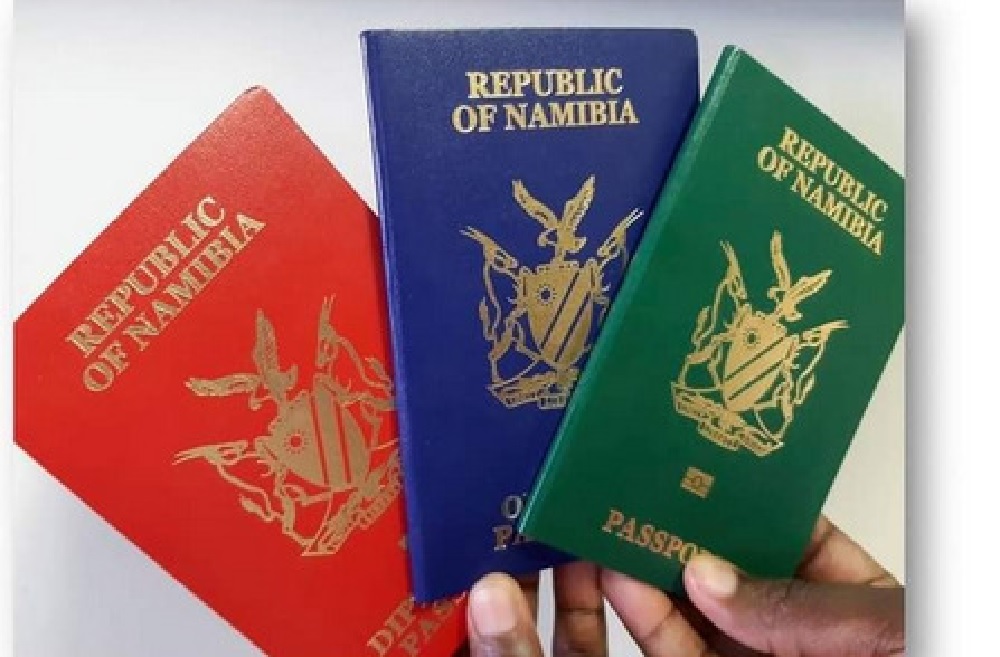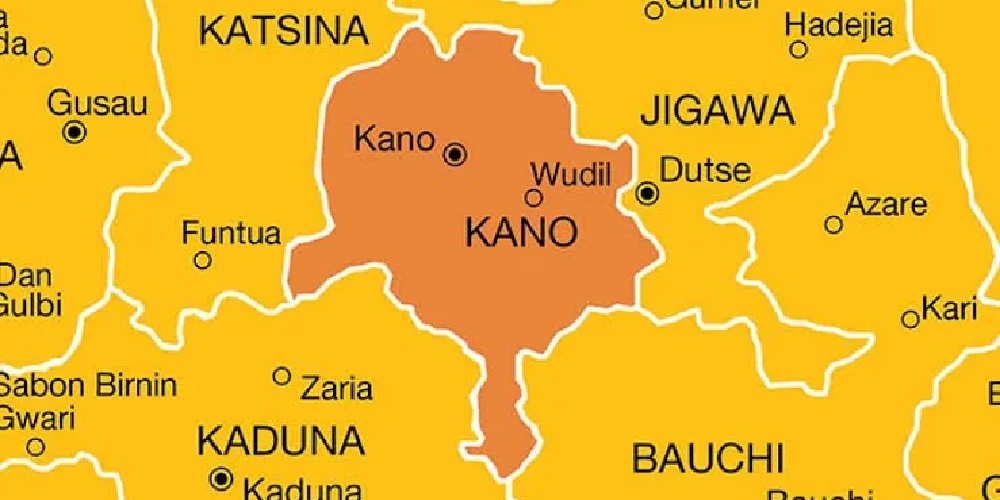Foreign
US judge halts Trump’s Executive order freezing foreign aids

A federal judge on Thursday ordered the Trump administration to restore funding for hundreds of foreign aid contractors who say they’ve been devastated by President Donald Trump’s abrupt — and in their view illegal — 90-day blanket freeze.
U.S. District Judge Amir Ali, a Washington, D.C.-based appointee of President Joe Biden, said the Trump administration failed to account for the extraordinary harm caused by the broad-based halt to foreign aid.
“At least to date, Defendants have not offered any explanation for why a blanket suspension of all congressionally appropriated foreign aid, which set off a shock wave and upended reliance interests for thousands of agreements with businesses, nonprofits, and organizations around the country, was a rational precursor to reviewing programs,” Ali wrote.
“Absent temporary injunctive relief, therefore, the scale of the enormous harm that has already occurred will almost certainly increase,” the judge added.
Ali barred Trump’s top State Department and budget aides — including Secretary of State Marco Rubio and Office of Management and Budget Director Russell Vought — from implementing any contract cancellations or stop-work orders put into effect after Trump’s inauguration, at least while further litigation plays out.
The ruling effectively halts a central component of one of Trump’s Day One executive orders commanding his administration to freeze foreign aid for 90 days.
The judge concluded that the Trump administration appeared to act in an “arbitrary and capricious” manner by abruptly shutting off all foreign aid without considering consequences for businesses to whom that aid was awarded prior to Trump’s inauguration.
“There is nothing arbitrary and capricious about executive agencies conducting a review of programs,” he said. “But there has been no explanation offered … as to why reviewing programs — many longstanding and taking place pursuant to contractual terms — required an immediate and wholesale suspension of appropriated foreign aid.”
Lawyers for the contractors described extensive damage and disruption caused by Trump’s bid to freeze and cancel thousands of ongoing contracts with organizations funded by USAID foreign assistance dollars. Their claims were bolstered by a list the administration delivered at the judge’s order of more than 200 foreign aid contracts that were canceled just this week.
“Businesses are shuttering, terminating employees … food is rotting, medication is expiring,” attorney Stephen Wirth described in a 90-minute, conference-call hearing Ali held Wednesday as the courthouse was closed due to snow.
Lawyers for the contract and grant recipients emphasized that it wasn’t just foreign organizations being harmed but businesses and organizations across the United States — who work with overseas partners — that were laying off or furloughing nearly their entire staffs. Many of them won’t survive the 90-day freeze, the attorneys said.
“Shutting down billions of dollars in government spending, sending numerous foreign aid partners large and small into oblivion, shutting them down so they are out of business is clearly of sufficient political, social and economic significance that it would require clear congressional authorization,” another attorney for the groups argued.
Ali agreed that the harm being caused by the freeze, coupled with their credible arguments that the freeze could violate laws against government officials making “arbitrary and capricious” decisions, justified ordering the administration to lift the freeze while further litigation plays out.
In the arguments Wednesday, the Justice Department took an unusually expansive view of executive power. DOJ attorney Eric Hamilton argued that, because the steps being taken are at presidential direction, the groups had no authority to challenge the actions by USAID and the State Department under the Administrative Procedure Act, which is what allows courts to block “arbitrary and capricious” actions by federal agencies.
“We don’t have agency action because the agency is implementing an executive order,” Hamilton said. “It is an enormously disruptive suggestion … to have this intrusion into USAID which would basically place USAID into receivership with a federal court … This policy is happening against the backdrop of the president’s exercise of his Article II authority to set the foreign policy for the United States.”
In his Thursday night ruling, Ali scoffed at that argument, saying the Justice Department’s interpretation would put all sorts of agency action beyond review from the courts and could gut the APA.
“Defendants’ argument, at least as it has been articulated to date, proves too much — it would allow the President and agencies to simply reframe agency action as orders or directives originating from the President to avoid APA review,” the judge wrote.
Ali’s order is the second to interrupt Trump’s sweeping effort to defund and dismantle USAID, the agency responsible for administering billions of dollars in foreign aid programs.
Last week, U.S. District Judge Carl Nichols, a Trump appointee, blocked the administration from abruptly placing thousands of workers on administrative leave and cutting off their access to government systems. Nichols extended that hold Thursday for another week.
Ali is also the third judge to issue an emergency block on Trump’s efforts to unilaterally freeze wide swaths of government spending. U.S. District Judge John McConnell, an appointee of President Barack Obama based in Rhode Island, has forced the administration to lift a blanket freeze on domestic federal programs. Another Washington, D.C., judge, Biden appointee Loren AliKhan, has also blocked aspects of Trump’s domestic spending freeze.
Foreign
Journalists rally against White House’s decision to modify allocation of seats in briefing room

The White House said Monday it is “seriously considering” taking control of deciding which journalists get seats in the famed briefing room, in the latest bid by President Donald Trump’s administration to exert power over the media.
The 49 spots in the press room, where spokespeople, officials and occasionally the president take the podium, have long been allocated by the non-partisan group of independent journalists, the White House Correspondents Association.
White House Press Secretary Karoline Leavitt accused the WHCA of trying to maintain a “monetized monopoly over the briefing room.”
“As for switching up seating in the briefing room, it’s something we are seriously considering,” she told Fox News.
“The briefing room is part of the People’s House, it belongs to the American people. It does not belong to elitist journalists here in Washington DC.”
News outlet Axios reported earlier that the White House wanted to take control of the seating chart to give more prime front-of-room spots to new media, and move some legacy outlets further back.
The WHCA, of which AFP is a member, opposed the “wrong-headed” move.
“The reason the White House wants control of the briefing room is the same reason they took control of the pool: to exert pressure on journalists over coverage they disagree with,” WHCA President Eugene Daniels said in a statement.
The WHCA and the White House both said they had tried to broker a meeting on the issue.
It is the latest effort by the White House to shape who covers Trump after taking control from the WHCA in February of the “pool” that covers the president in the Oval Office and when he travels on Air Force One.
The White House has added access to the pool for new and in several cases openly pro-Trump media, while reducing access to mainstream organisations.
It also continues to bar the Associated Press news agency from almost all presidential events as it refuses to refer to the Gulf of Mexico as the “Gulf of America,” the name newly decreed by Trump.
AFP
Foreign
Ghana: Govt cancels sale of diplomatic properties in Nigeria, Zambia

The Ghanaian government has canceled two transactions initiated by the previous administration under the leadership of former president Nana Akufo-Addo to sell Ghanaian diplomatic properties in Nigeria and Zambia.
“Yesterday I informed Parliament that with the full backing of President Mahama, we have cancelled two transactions initiated by the previous Akufo-Addo/Bawumia government to sell Ghanaian diplomatic properties in Nigeria and Zambia.” Minister of Foreign Affairs, Hon. Samuel Okudzeto Ablakwa announced on his X.
According to the Member of Parliament for North Tongu, the current administration is determined to retrieve an illegal part payment in one of the transactions.
Adding that those who are involved in these illegal transactions will be sanctioned.
“Determined efforts are underway to retrieve an illegal part payment in one of the transactions. The masterminds, who are currently on the run will surely be found and sanctioned.” He added.
He said the NDC government is committed to their promise that no diplomatic property belonging to the people of Ghana would be sold under President John Dramani Mahama administration.
Hon. Ablakwa warned that none of our diplomatic properties either in Ghana or any of our 71 diplomatic missions abroad are available for sale.
“We mean it when we say no diplomatic property belonging to the people of Ghana would be sold under our watch. Notice is hereby served that none of our diplomatic properties either in Ghana or any of our 71 diplomatic missions abroad are available for sale — hands off!” He stated.
According to him, they will use the principles of Operation Recover All Loots (ORAL) to protect properties belonging to the state as well as the public purse.
“The principles of ORAL, strict abhorrence for State Capture and the national interest shall continue to guide our decisions. For God and Country.” Ablakwa assured.
Source: Elvisanokyenews.net
Foreign
Namibia to enforce visa requirement on U.S citizens

Namibia has imposed visa requirements on U.S. citizen tourists starting from April 1, 2025.
According to the Namibian Government, U.S. citizen tourists who wish to visit the Southern African country should obtain a visa before entering the country.
The U.S Embassy in Namibia posted that US visitors are required to apply for a visa through Namibia’s online visa on arrival portal: https://eservices.mhaiss.gov.na/visaonarrival.
“Beginning April 1, 2025, the Namibian Government will require U.S. citizen tourists to obtain a visa prior to entering the country. Visitors are recommended to apply for their visa in advance of planned travel through Namibia’s online visa on arrival portal: https://eservices.mhaiss.gov.na/visaonarrival. Visitors using this online visa application system must carry a hard copy of their approval notice when they travel.” The Embassy posted.
The Namibian Government added that visitors arriving in Windhoek, Walvis Bay, Katima Mulilo, Ngoma will also have the option of purchasing a tourist visa upon arrival at the respective airport or border crossing point.
“Visitors arriving in Windhoek, Walvis Bay, or entering at high volume border crossing points (e.g., Katima Mulilo, Ngoma) will also have the option of purchasing a tourist visa upon arrival at the respective airport or border crossing point. Namibia’s visa on arrival system is new and implementation details are subject to change.” They added.
The decision by the Namibian government to impose visa requirements on US citizens has met mixed reactions on social media.
While others are commending the government, others have also raised concerns about the negative impact on the Namibia economy as tourism contributes higher income to the government.
Some political actors believe Namibian female President, H.E. Dr. Netumbo Nandi-Ndaitwah took the decision to reciprocate the US government visa restrictions and some Western countries who have denied visa free entry to Namibians.
Source: Elvisanokyenews.net
-

 News7 hours ago
News7 hours agoBREAKING! Finally, Senate lifts suspension on Natasha
-

 News20 hours ago
News20 hours agoFormer HoR member, TeeJay Yusuf calls on IGP, Kogi govt, other agencies to curb rising insecurity in Okun-Yoruba
-

 News19 hours ago
News19 hours agoSad! Popular actor, Richard Chamberlain is dead
-

 News15 hours ago
News15 hours agoReps Minority Caucus Condemns Killings in Edo State
-

 News22 hours ago
News22 hours agoEdo Killings: Kano Govt Sends Fact-Finding Delegation, Demands Justice
-

 News19 hours ago
News19 hours agoMali, Niger, Burkina Faso Impose 0.5% Levy On Goods From ECOWAS Nations
-

 News22 hours ago
News22 hours agoJust in: Popular Osun Monarch Joins Ancestors
-

 News22 hours ago
News22 hours agoMeet Dr. Abdul Karim Bangura: Africa’s Most Educated Man


















